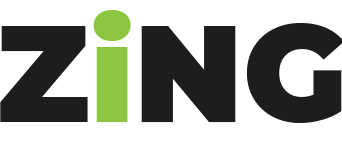Gathering your results ...

Job Details
Scheduling Systems Software Engineer
Ford Motor Company Dearborn, MI30+ days
Not Specified
Not Specified
Not Specified
<p>Join Ford's mission to modernize automotive manufacturing through innovative, intelligent software. As a Software Engineer, you'll be at the intersection of the digital and physical-developing and deploying cutting-edge vehicle scheduling applications that bring data, automation, and intelligence to the factory floor. You'll help build the platforms that power our plants, enabling real-time insights and resilient operations that scale with the future of mobility.</p> <p>This is a great opportunity to drive the delivery of a key enterprise objectives in building Ford's flagship products - bring your experience to have significant business impact. In this role you will be working with a unique blend of engineers, data scientists, DevOps, automation, controls and manufacturing business personnel - ideating, building and scaling Billion-Dollar ideas for the manufacturing of iconic Ford products. This is a rare opportunity to put your signature on how Ford manufactures vehicles.</p> <p>In Plant Systems Software Engineer/Developer</p> <ul> <li>Software Development: Utilizing modern software delivery tools such as GitHub, Jenkins, Junit, Gradle, Eclipse/IntelliJ, and Docker/Kubernetes to develop, test, and deliver scheduling solutions. </li><li>Agile Practices: Implementing Agile development methodologies (e.g., JIRA for Epic/Sub management, story writing, iteration planning, burn-downs, ceremonies, retrospectives). </li><li>Cloud & Distributed Systems: Learning and applying cloud-based computing technologies (GCP, CaaS, Windows 2016, SQL Server 2016) for deployment to distributed plant environments. </li><li>Modern Development Methods: Practicing paired programming, XP, SCRUM, and test-driven development. </li><li>Legacy Migration: Assisting in and implementing the migration path from legacy technologies to new platforms. </li><li>Domain Expertise: Gaining a deep understanding of the core functionality of the Manufacturing Production Scheduling process. </li><li>Monitoring & Integration: Identifying and implementing Dynatrace and Splunk integration methods for newly developed tools.Software Development: Utilizing modern software delivery tools such as GitHub, Jenkins, Junit, Gradle, Eclipse/IntelliJ, and Docker/Kubernetes to develop, test, and deliver scheduling solutions. </li><li>Agile Practices: Implementing Agile development methodologies (e.g., JIRA for Epic/Sub management, story writing, iteration planning, burn-downs, ceremonies, retrospectives). </li><li>Cloud & Distributed Systems: Learning and applying cloud-based computing technologies (GCP, CaaS, Windows 2016, SQL Server 2016) for deployment to distributed plant environments. </li><li>Modern Development Methods: Practicing paired programming, XP, SCRUM, and test-driven development. </li><li>Legacy Migration: Assisting in and implementing the migration path from legacy technologies to new platforms. </li><li>Domain Expertise: Gaining a deep understanding of the core functionality of the Manufacturing Production Scheduling process. </li><li>Monitoring & Integration: Identifying and implementing Dynatrace and Splunk integration methods for newly developed tools. </li><li>Software Development: Utilizing modern software delivery tools such as GitHub, Jenkins, Junit, Gradle, Eclipse/IntelliJ, and Docker/Kubernetes to develop, test, and deliver scheduling solutions. </li><li>Agile Practices: Implementing Agile development methodologies (e.g., JIRA for Epic/Sub management, story writing, iteration planning, burn-downs, ceremonies, retrospectives). </li><li>Cloud & Distributed Systems: Learning and applying cloud-based computing technologies (GCP, CaaS, Windows 2016, SQL Server 2016) for deployment to distributed plant environments. </li><li>Modern Development Methods: Practicing paired programming, XP, SCRUM, and test-driven development. </li><li>Legacy Migration: Assisting in and implementing the migration path from legacy technologies to new platforms. </li><li>Domain Expertise: Gaining a deep understanding of the core functionality of the Manufacturing Production Scheduling process. </li><li>Monitoring & Integration: Identifying and implementing Dynatrace and Splunk integration methods for newly developed tools.Software Development: Utilizing modern software delivery tools such as GitHub, Jenkins, Junit, Gradle, Eclipse/IntelliJ, and Docker/Kubernetes to develop, test, and deliver scheduling solutions. </li><li>Agile Practices: Implementing Agile development methodologies (e.g., JIRA for Epic/Sub management, story writing, iteration planning, burn-downs, ceremonies, retrospectives). </li><li>Cloud & Distributed Systems: Learning and applying cloud-based computing technologies (GCP, CaaS, Windows 2016, SQL Server 2016) for deployment to distributed plant environments. </li><li>Modern Development Methods: Practicing paired programming, XP, SCRUM, and test-driven development. </li><li>Legacy Migration: Assisting in and implementing the migration path from legacy technologies to new platforms. </li><li>Domain Expertise: Gaining a deep understanding of the core functionality of the Manufacturing Production Scheduling process. </li><li>Monitoring & Integration: Identifying and implementing Dynatrace and Splunk integration methods for newly developed tools. </li></ul>

POST A JOB
It's completely FREE to post your jobs on ZiNG! There's no catch, no credit card needed, and no limits to number of job posts.
The first step is to SIGN UP so that you can manage all your job postings under your profile.
If you already have an account, you can LOGIN to post a job or manage your other postings.
Thank you for helping us get Americans back to work!
It's completely FREE to post your jobs on ZiNG! There's no catch, no credit card needed, and no limits to number of job posts.
The first step is to SIGN UP so that you can manage all your job postings under your profile.
If you already have an account, you can LOGIN to post a job or manage your other postings.
Thank you for helping us get Americans back to work!